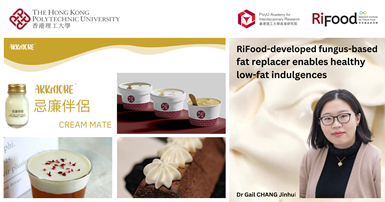
RiFood-developed fungus-based fat replacer enables healthy low-fat indulgences
1 Mar, 2024
Research Results
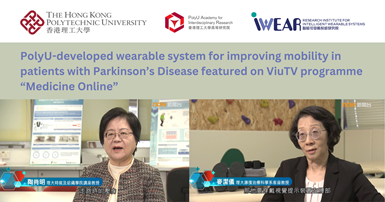
PolyU-developed wearable system for improving mobility in patients with Parkinson’s Disease featured on ViuTV programme “Medicine Online”
29 Feb, 2024
Publicities
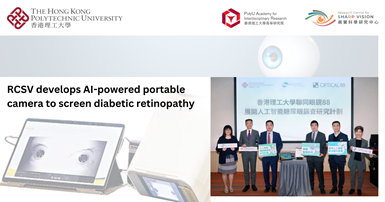
RCSV develops AI-powered portable camera to screen diabetic retinopathy
28 Feb, 2024
Media Coverage
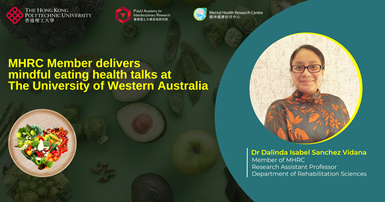
MHRC Member delivers mindful eating health talks at The University of Western Australia
28 Feb, 2024
Scholarly Engagement
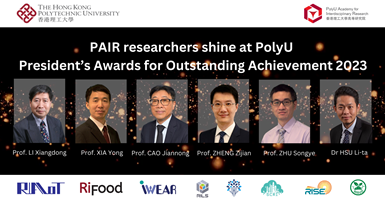
PAIR researchers shine at PolyU President’s Awards for Outstanding Achievement 2023
28 Feb, 2024
Awards & Recognitions
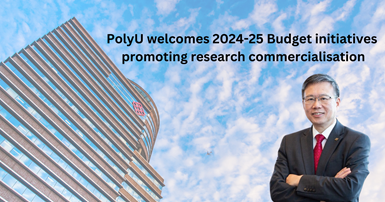
PolyU welcomes 2024-25 Budget initiatives promoting research commercialisation
28 Feb, 2024
Publicities
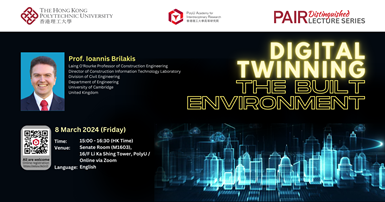
Prof. Ioannis BRILAKIS of University of Cambridge to deliver PAIR Distinguished Lecture on built environment digital twinning
27 Feb, 2024
PAIR Distinguished Lecture Series
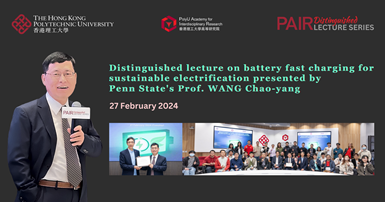
Distinguished lecture on battery fast charging for sustainable electrification presented by Penn State's Prof. WANG Chao-yang
27 Feb, 2024
PAIR Distinguished Lecture Series
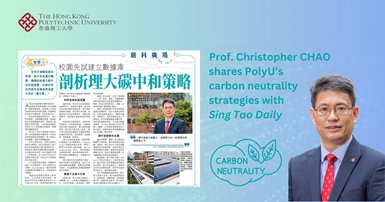
Prof. Christopher CHAO shares PolyU’s carbon neutrality strategies with Sing Tao Daily
26 Feb, 2024
Media Coverage
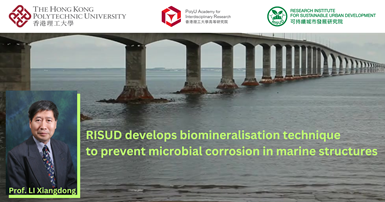
RISUD develops biomineralisation technique to prevent microbial corrosion in marine structures
21 Feb, 2024
Research Results


